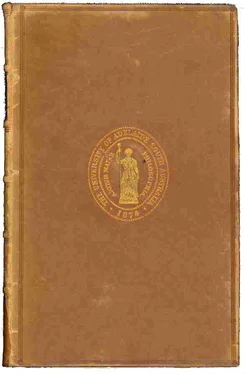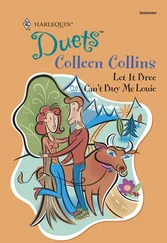Galsworthy, 1867-1933 - To Let
Здесь есть возможность читать онлайн «Galsworthy, 1867-1933 - To Let» весь текст электронной книги совершенно бесплатно (целиком полную версию без сокращений). В некоторых случаях можно слушать аудио, скачать через торрент в формате fb2 и присутствует краткое содержание. Жанр: Старинная литература, на английском языке. Описание произведения, (предисловие) а так же отзывы посетителей доступны на портале библиотеки ЛибКат.
- Название:To Let
- Автор:
- Жанр:
- Год:неизвестен
- ISBN:нет данных
- Рейтинг книги:5 / 5. Голосов: 1
-
Избранное:Добавить в избранное
- Отзывы:
-
Ваша оценка:
- 100
- 1
- 2
- 3
- 4
- 5
To Let: краткое содержание, описание и аннотация
Предлагаем к чтению аннотацию, описание, краткое содержание или предисловие (зависит от того, что написал сам автор книги «To Let»). Если вы не нашли необходимую информацию о книге — напишите в комментариях, мы постараемся отыскать её.
To Let — читать онлайн бесплатно полную книгу (весь текст) целиком
Ниже представлен текст книги, разбитый по страницам. Система сохранения места последней прочитанной страницы, позволяет с удобством читать онлайн бесплатно книгу «To Let», без необходимости каждый раз заново искать на чём Вы остановились. Поставьте закладку, и сможете в любой момент перейти на страницу, на которой закончили чтение.
Интервал:
Закладка:
“Good!” he cried. “That’s the great discovery of the war. We all thought we were progressing — now we know we’re only changing.”
“For the worse,” said Monsieur Profond genially.
“How you are cheerful, Prosper!” murmured Annette.
“You come and play tennis!” said Jack Cardigan; “you’ve got the hump. We’ll soon take that down. D’you play, Mr. Mont?”
“I hit the ball about, sir.”
At this juncture Soames rose, ruffled in that deep instinct of preparation for the future which guided his existence.
“When Fleur comes —” he heard Jack Cardigan say.
Ah! and why didn’t she come? He passed through drawing-room, hall, and porch out onto the drive, and stood there listening for the car. All was still and Sunday-fied; the lilacs in full flower scented the air. There were white clouds, like the feathers of ducks gilded by the sunlight. Memory of the day when Fleur was born, and he had waited in such agony with her life and her mother’s balanced in his hands, came to him sharply. He had saved her then, to be the flower of his life. And now! Was she going to give him trouble — pain — give him trouble? He did not like the look of things! A blackbird broke in on his reverie with an evening song — a great big fellow up in that acacia-tree. Soames had taken quite an interest in his birds of late years; he and Fleur would walk round and watch them; her eyes were sharp as needles, and she knew every nest. He saw her dog, a retriever, lying on the drive in a patch of sunlight, and called to him, “Hallo, old fellow — waiting for her too!” The dog came slowly with a grudging tail, and Soames mechanically laid a pat on his head. The dog, the bird, the lilac all were part of Fleur for him; no more, no less. ‘Too fond of her!’ he thought, ‘too fond!’ He was like a man uninsured, with his ships at sea. Uninsured again — as in that other time, so long ago, when he would wander dumb and jealous in the wilderness of London, longing for that woman — his first wife — he mother of this infernal boy. Ah! There was the car at last! It drew up, it had luggage, but no Fleur.
“Miss Fleur is walking up, sir, by the towing-path”
Walking all those miles? Soames stared. The man’s face had the beginning of a smile on it. What was he grinning at? And very quickly he turned, saying: “All right, Sims!” and went into the house. He mounted to the picture-gallery once more. He had from there a view of the river bank, and stood with his eyes fixed on it, oblivious of the fact that it would be an hour at least before her figure showed there. Walking up! And that fellow’s grin! The boy —! He turned abruptly from the window. He couldn’t spy on her. If she wanted to keep things from him — she must; he could not spy on her. His heart felt empty; and bitterness mounted from it into his very mouth. The staccato shouts of Jack Cardigan pursuing the ball, the laugh of young Mont rose in the stillness and came in. He hoped they were making that chap Profond run. And the girl in “La Vendimia” stood with her arm akimbo and her dreamy eyes looking past him. ‘I’ve done all I could for you,’ he thought, ‘since you were no higher than my knee. You aren’t going to — to — hurt me, are you?’
But the Goya copy answered not, brilliant in colour just beginning to tone down. ‘There’s no real life in it,’ thought Soames. ‘Why doesn’t she come?’
Last updated on Wed Jan 12 09:33:24 2011 for eBooks@Adelaide.
To Let, by John Galsworthy
X Trio
Among those four Forsytes of the third, and, as one might say, fourth generation, at Wansdon under the Downs, a week-end prolonged unto the ninth day had stretched the crossing threads of tenacity almost to snapping-point. Never had Fleur been so “FINE,” Holly so watchful, Val so stable-secretive, Jon so silent and disturbed. What he learned of farming in that week might have been balanced on the point of a pen-knife and puffed off. He, whose nature was essentially averse to intrigue, and whose adoration of Fleur disposed him to think that any need for concealing it was “skittles,” chafed and fretted, yet obeyed, taking what relief he could in the few moments when they were alone. On Thursday, while they were standing in the bay window of the drawing-room, dressed for dinner, she said to him:
“Jon, I’m going home on Sunday by the 3.40 from Paddington; if you were to go home on SATURDAY you could come up on Sunday and take me down, and just get back here by the last train, after. You WERE going home anyway, weren’t you?”
Jon nodded.
“Anything to be with you,” he said; “only why need I pretend —”
Fleur slipped her little finger into his palm:
“You have no instinct, Jon; you MUST leave things to me. It’s serious about our people. We’ve simply got to be secret at present, if we want to be together.” The door was opened, and she added loudly: “You ARE a duffer, Jon.”
Something turned over within Jon; he could not bear this subterfuge about a feeling so natural, so overwhelming, and so sweet.
On Friday night about eleven he had packed his bag, and was leaning out of his window, half miserable and half lost in a dream of Paddington station, when he heard a tiny sound, as of a finger-nail tapping on his door. He rushed to it and listened. Again the sound. It WAS a nail. He opened. Oh! What a lovely thing came in!
“I wanted to show you my fancy dress,” it said, and struck an attitude at the foot of his bed. Jon drew a long breath and leaned against the door. The apparition wore white muslin on its head, a fichu round its bare neck over a wine-coloured dress, fulled out below its slender waist. It held one arm akimbo, and the other raised right-angled holding a fan which touched its head.
“This ought to be a basket of grapes,” it whispered, “but I haven’t got it here. It’s my Goya dress. And this is the attitude in the picture. Do you like it?”
“It’s a dream.”
The apparition pirouetted. “Touch it, and see.”
Jon knelt down and took the skirt reverently.
“Grape colour,” came the whisper, “all grapes — La Vendimia — the vintage.”
Jon’s fingers scarcely touched each side of the waist; he looked up, with adoring eyes.
“Oh! Jon,” it whispered; bent, kissed his forehead, pirouetted again, and,— gliding out, was gone.
Jon stayed on his knees, and his head fell forward against the bed. How long he stayed like that he did not know. The little noises of the tapping nail, the feet, the skirts rustling — as in a dream — went on about him; and before his closed eyes the figure stood and smiled and whispered, a faint perfume of narcissus lingering in the air. And his forehead where it had been kissed had a little cool place between the brows, like the imprint of a flower. Love filled his soul, that love of boy for girl which knows so little, hopes so much, would not brush the down off for the world, and must become in time a fragrant memory — a searing passion — a humdrum mateship — or, once in many times, vintage full and sweet with sunset colour on the grapes.
Enough has been said about Jon Forsyte here and in another place to show what long marches lay between him and his great-great-grandfather, the first Jolyon, in Dorset down by the sea. Jon was sensitive as a girl, more sensitive than nine out of ten girls of the day; imaginative as one of his half-sister June’s “lame duck” painters; affectionate as a son of his father and his mother naturally would be. And yet, in his inner tissue, there was something of the old founder of his family, a secret tenacity of soul, a dread of showing his feelings, a determination not to know when he was beaten. Sensitive, imaginative, affectionate boys get a bad time at school, but Jon had instinctively kept his nature dark, and been but normally unhappy there. Only with his mother had he, up till then, been absolutely frank and natural; and when he went home to Robin Hill that Saturday his heart was heavy because Fleur had said that he must not be frank and natural with her from whom he had never yet kept anything, must not even tell her that they had met again, unless he found that she knew already. So intolerable did this seem to him that he was very near to telegraphing an excuse and staying up in London. And the first thing his mother said to him was:
Читать дальшеИнтервал:
Закладка:
Похожие книги на «To Let»
Представляем Вашему вниманию похожие книги на «To Let» списком для выбора. Мы отобрали схожую по названию и смыслу литературу в надежде предоставить читателям больше вариантов отыскать новые, интересные, ещё непрочитанные произведения.
Обсуждение, отзывы о книге «To Let» и просто собственные мнения читателей. Оставьте ваши комментарии, напишите, что Вы думаете о произведении, его смысле или главных героях. Укажите что конкретно понравилось, а что нет, и почему Вы так считаете.












